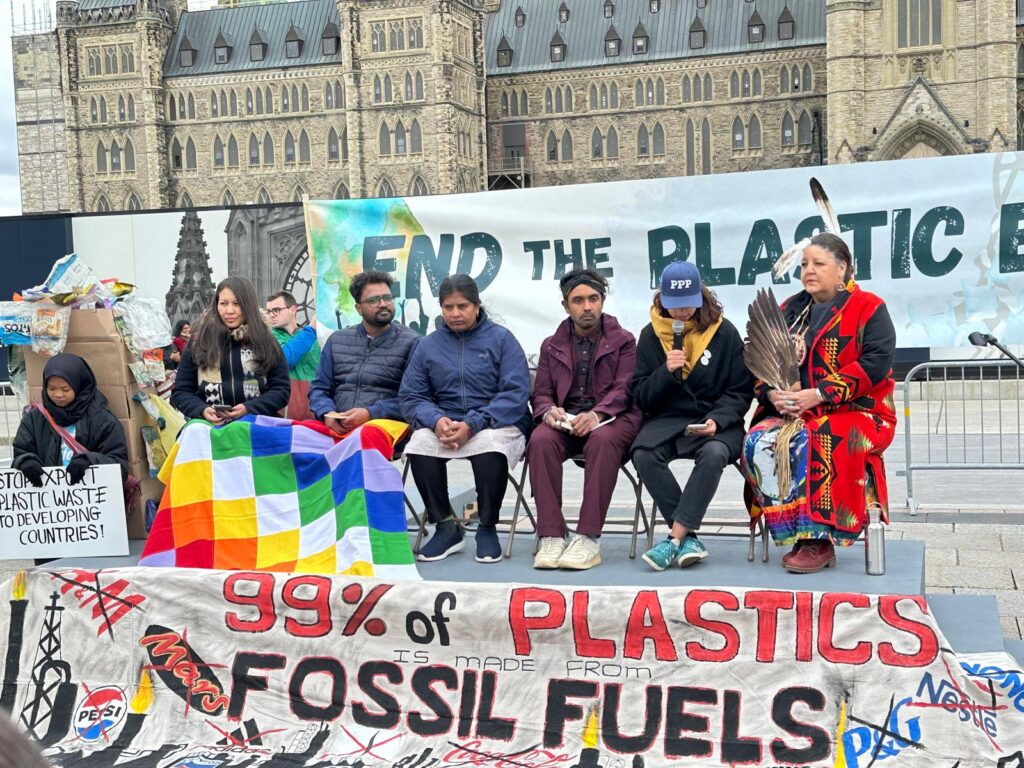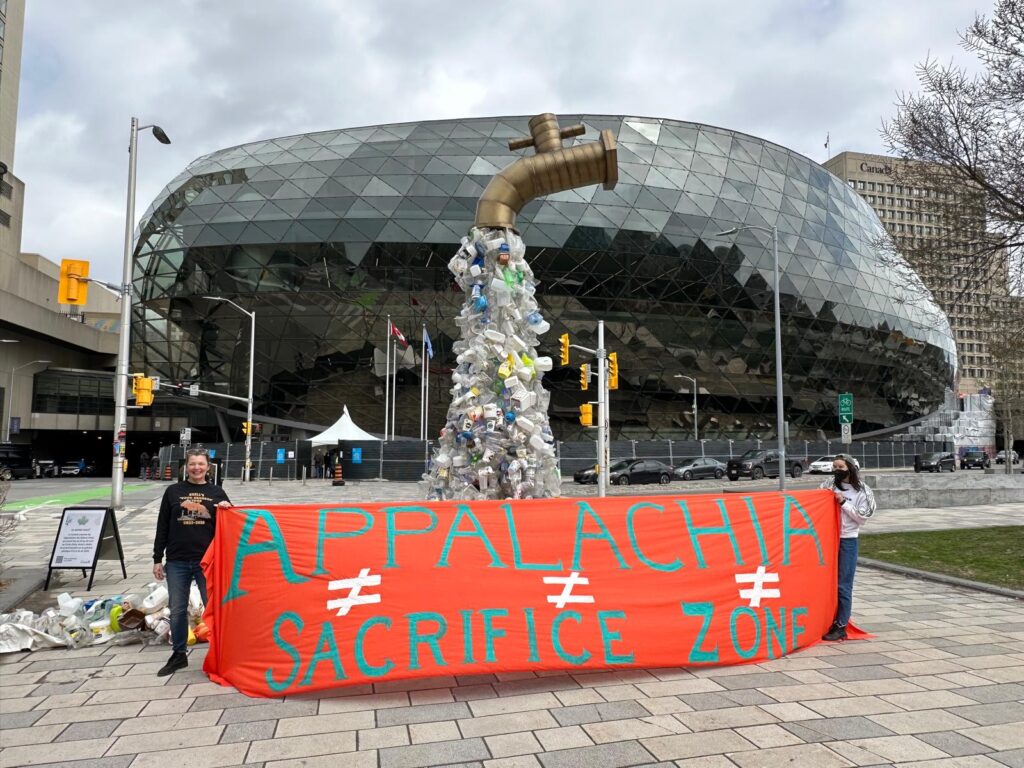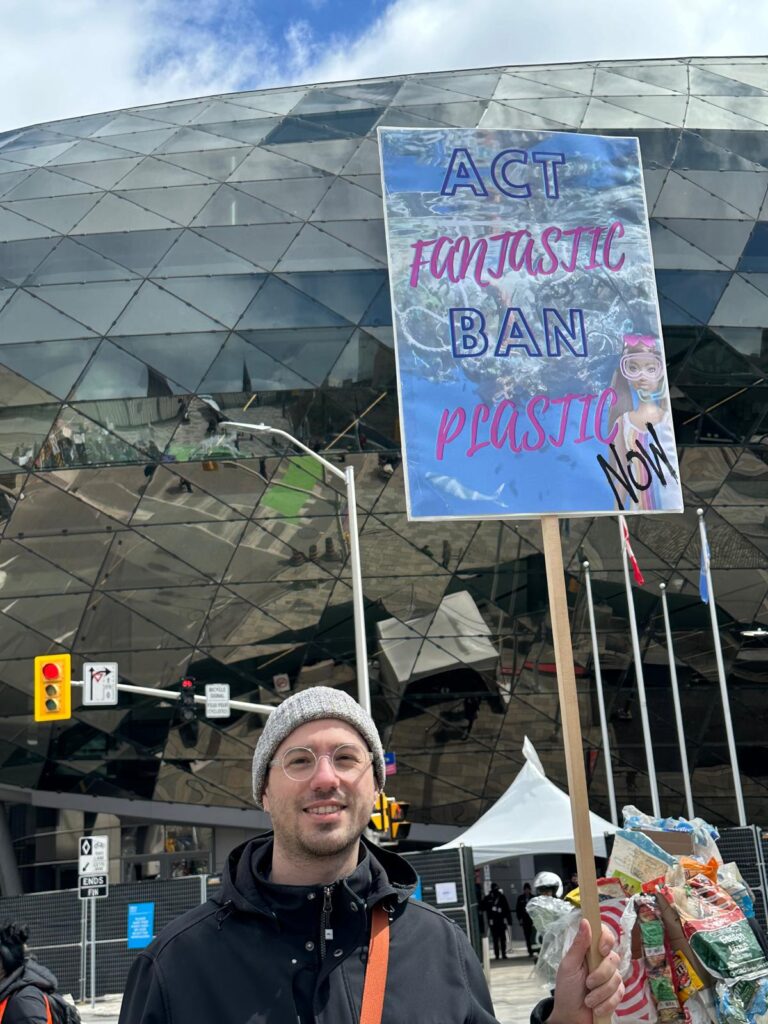|
Getting your Trinity Audio player ready...
|

What is happening: This month, environmental justice advocates will join world leaders in Busan, South Korea. From November 25 – December 1, 175 countries will meet to advance a treaty to address the global plastics crisis. This is the fifth and final session of the Intergovernmental Negotiating Committee on Plastic Pollution (INC-5).
What is at stake: Increases in plastics production means increases in fracking and the build-out of associated oil, gas and petrochemical facilities. The lifecycle of plastics pollutes air and water, harms health and worsens the climate crisis.
Why is this year important: Last year’s conference was dominated by fossil fuel and chemical lobbyists who hindered negotiations. With concern that a second Trump presidency will again pull out of the Paris Climate Agreement, this is a must-win window for the Biden administration to secure a legally-binding treaty for most of the nations of the world (if not the US).
The best outcome: Simply put, prioritize people and planet above corporate greed. This means reducing production, eliminating virgin plastics, and avoiding false solutions such as chemical recycling.
Read more for an in-depth primary on INC-5 in Bucan, South Korea!
Responding to the Plastics Crisis
From oil and gas extraction to plastic waste disposal, the petrochemical lifecycle pollutes air and water, causes cancer and other adverse health effects and contributes to the climate crisis. These harms disproportionately impact fenceline, frontline, and Indigenous across the US and around the world.
Toxic chemicals from fracking destroy precious drinking water reserves. Microplastics contaminate food supplies and make their way into the human brain, bloodstream, and placenta. Plastic waste pollutes oceans and waterways, harming vulnerable communities around the globe.
Yet, rather than urgently phasing out plastic production, the U.S. is poised for a boom in the petrochemical industry. This comes as no surprise: oil and gas executives have repeatedly pointed to plastics as the lifeline of the fossil fuel industry.
The fourth session (INC-4), hosted last April in Ottawa, Canada, concluded with little progress on the text of the treaty, as interests of the planet and frontline communities took a back seat to the agenda of the fossil fuel industry. Negotiations were hindered by the participation of 196 registered fossil fuel and chemical industry lobbyists – a 37% increase from the previous session.

Over the summer, parties to the negotiation continued to meet. Yet the intersessional conversations excluded deliberation around primary plastic polymers, the building blocks of plastics, which will make it more difficult to include text on extraction and production reduction in the final treaty.
Towards a Binding Treaty
INC-5 presents an opportunity for world leaders to address the crisis through a legally-binding treaty on plastic pollution. Deliberations in Busan will cover all aspects of the plastics life cycle including emissions and releases, production, waste management, single-use plastics, financing, and a just transition. Environmental justice community members know that halting harms of plastic across the full petrochemical lifecycle means including in the text specific language around extraction and production.

The U.S. government can and must lead the way toward an ambitious and meaningful treaty by championing a binding, mandatory global cap on plastics production. The US Delegation has stated that it is open to pursuing legally binding supply side measures to reduce the production of primary plastic polymers, chemicals of concern in plastics, and problematic and avoidable plastic products; while taking a full lifecycle approach that begins at extraction. Codifying these measures in an internationally legally binding instrument on plastic pollution, with no loopholes, would advance the Biden Administration’s environmental justice priorities.
As the incoming Trump Administration is poised to roll back domestic environmental laws and bolster the plastics and petrochemical buildout, legally-binding international treaties become more important than ever. Should the negotiations fail to reach a treaty, they will move into a COP (Conference of Parties) for further deliberation. Under the Trump Administration, the U.S. will not likely not be party to the treaty.
Demands:
The U.S. delegation must protect Biden’s legacy and prioritize people over pollution. Protecting vulnerable communities from the harms of plastic pollution means securing a legally binding instrument that halts production, avoids false solutions such as chemical recycling, and advances real circular solutions like non-toxic, closed-loop systems. The Biden Administration must commit to actively supporting:
- A global target to halt and phase down primary polymer production, accompanied by clear, mandatory pathways for targets to be met
- Global obligations to reduce and phase out chemicals of concern in plastics, including chemical groups
- Binding measures on emissions and releases across the plastics lifecycle, beginning at feedstock extraction
- Reduction in use of plastics through non-toxic reuse and refill via non-plastic alternatives
- Transparency in labeling, monitoring, and reporting requirements
